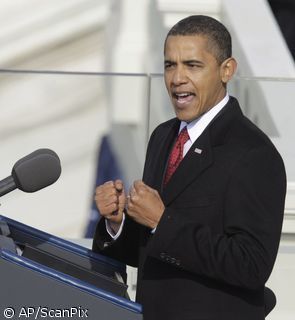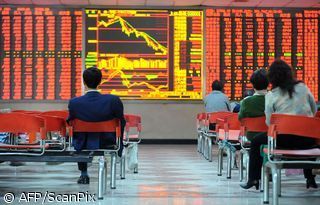It is the only source that can provide a chance for economic breakthrough
Published:
21 March 2005 y., Monday
Money from Russia’s Stabilisation Fund is expected to be invested abroad in dollar-nominated securities, with minimum investment risks and minimum profitability at 2-4%. These funds have until now been kept in Central Bank accounts. This means that a great deal of money will soon appear on the financial markets. On February 1, 2005, the Fund totaled 647.2 billion roubles ($23.1 billion), which mostly came from taxes on oil sales with prices exceeding $20 per barrel and export duties from oil companies.
The crucial question is how this money should be used. Money can only be taken out of the Fund when it has more than 500 billion roubles. Therefore, more than a fifth of its resources can already be used. This is a key issue for Russia’s economy, as the positive overseas market situation in recent years has been almost exclusively responsible for its growth.
However, experts are not tired of repeating that the potential of the resource-oriented Russian economy has been virtually exhausted. The mechanism whereby "we produce oil, sell it and enjoy the benefits" is becoming increasingly less effective. The country is now at a stage when it must introduce an industrial policy. However, any policy only makes sense when there is money to implement it.
Russia’s stock market and banking system do not provide the necessary financing for the real sector of the economy. Direct foreign investment in Russia remains at a very low level, while foreign investment in general is concentrated on either the import of equipment or foreign borrowings. The country obviously needs sources for further growth. The Stabilisation Fund is virtually the only potential source today and a genuine war is being waged for its funds.
Šaltinis:
financialexpress.com
Copying, publishing, announcing any information from the News.lt portal without written permission of News.lt editorial office is prohibited.
The most popular articles
 Bank DnB NORD A/S increasing its holdings in its Lithuanian subsidiary to 99.84 percent through acquisition of shares from minority shareholders.
more »
Bank DnB NORD A/S increasing its holdings in its Lithuanian subsidiary to 99.84 percent through acquisition of shares from minority shareholders.
more »
 AB Bank SNORAS will grant LTL 35 million for financing the small and medium businesses on the exclusive conditions.
more »
AB Bank SNORAS will grant LTL 35 million for financing the small and medium businesses on the exclusive conditions.
more »
 Rejecting survival plans from both General Motors and Chrysler, President Barack Obama warned the ailing US automakers they could be forced into bankruptcy if they don't find a way to slash their debt.
more »
Rejecting survival plans from both General Motors and Chrysler, President Barack Obama warned the ailing US automakers they could be forced into bankruptcy if they don't find a way to slash their debt.
more »
 Prevailing wisdom says when the going gets tough the weary go drinking. The demand for beer exceeds the demand for all other alcoholic beverages in USA.
more »
Prevailing wisdom says when the going gets tough the weary go drinking. The demand for beer exceeds the demand for all other alcoholic beverages in USA.
more »
 Things have been moving slowly for Swiss watchmakers in recent months. The global economic downturn has hit the country's third most important industry hard.
more »
Things have been moving slowly for Swiss watchmakers in recent months. The global economic downturn has hit the country's third most important industry hard.
more »
 The move came a day before the U.S. government was due to outline new steps to help GM and Chrysler as part of the federal bailout.
more »
The move came a day before the U.S. government was due to outline new steps to help GM and Chrysler as part of the federal bailout.
more »
 With the European year of creativity and innovation in full swing, leading figures warn against cutting back on research and development in times of crisis.
more »
With the European year of creativity and innovation in full swing, leading figures warn against cutting back on research and development in times of crisis.
more »
 Wall Street has been looking for signs of a bullish comeback, and today's surprise news on the economic front revived a buying spree... started by Monday's 7% rally.
more »
Wall Street has been looking for signs of a bullish comeback, and today's surprise news on the economic front revived a buying spree... started by Monday's 7% rally.
more »
 With the economic crisis eating away at public finances, budget deficits in five countries are expected to exceed the 3% of gross domestic product allowed by the EU.
more »
With the economic crisis eating away at public finances, budget deficits in five countries are expected to exceed the 3% of gross domestic product allowed by the EU.
more »
 China is calling for a new global currency to replace the dominant dollar, showing a growing assertiveness on revamping the world economy ahead of next week's London summit on the financial crisis.
more »
China is calling for a new global currency to replace the dominant dollar, showing a growing assertiveness on revamping the world economy ahead of next week's London summit on the financial crisis.
more »